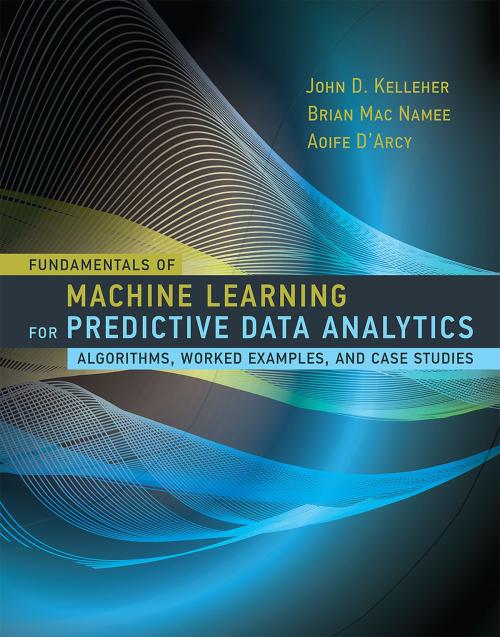Fundamentals of Machine Learning for Predictive Data Analytics
Algorithms, Worked Examples, and Case Studies
Nonfiction, Computers, Advanced Computing, Artificial Intelligence, General Computing| Author: | John D. Kelleher, Brian Mac Namee, Aoife D'Arcy | ISBN: | 9780262331746 |
| Publisher: | The MIT Press | Publication: | July 31, 2015 |
| Imprint: | The MIT Press | Language: | English |
| Author: | John D. Kelleher, Brian Mac Namee, Aoife D'Arcy |
| ISBN: | 9780262331746 |
| Publisher: | The MIT Press |
| Publication: | July 31, 2015 |
| Imprint: | The MIT Press |
| Language: | English |
A comprehensive introduction to the most important machine learning approaches used in predictive data analytics, covering both theoretical concepts and practical applications.
Machine learning is often used to build predictive models by extracting patterns from large datasets. These models are used in predictive data analytics applications including price prediction, risk assessment, predicting customer behavior, and document classification. This introductory textbook offers a detailed and focused treatment of the most important machine learning approaches used in predictive data analytics, covering both theoretical concepts and practical applications. Technical and mathematical material is augmented with explanatory worked examples, and case studies illustrate the application of these models in the broader business context.
After discussing the trajectory from data to insight to decision, the book describes four approaches to machine learning: information-based learning, similarity-based learning, probability-based learning, and error-based learning. Each of these approaches is introduced by a nontechnical explanation of the underlying concept, followed by mathematical models and algorithms illustrated by detailed worked examples. Finally, the book considers techniques for evaluating prediction models and offers two case studies that describe specific data analytics projects through each phase of development, from formulating the business problem to implementation of the analytics solution. The book, informed by the authors' many years of teaching machine learning, and working on predictive data analytics projects, is suitable for use by undergraduates in computer science, engineering, mathematics, or statistics; by graduate students in disciplines with applications for predictive data analytics; and as a reference for professionals.
A comprehensive introduction to the most important machine learning approaches used in predictive data analytics, covering both theoretical concepts and practical applications.
Machine learning is often used to build predictive models by extracting patterns from large datasets. These models are used in predictive data analytics applications including price prediction, risk assessment, predicting customer behavior, and document classification. This introductory textbook offers a detailed and focused treatment of the most important machine learning approaches used in predictive data analytics, covering both theoretical concepts and practical applications. Technical and mathematical material is augmented with explanatory worked examples, and case studies illustrate the application of these models in the broader business context.
After discussing the trajectory from data to insight to decision, the book describes four approaches to machine learning: information-based learning, similarity-based learning, probability-based learning, and error-based learning. Each of these approaches is introduced by a nontechnical explanation of the underlying concept, followed by mathematical models and algorithms illustrated by detailed worked examples. Finally, the book considers techniques for evaluating prediction models and offers two case studies that describe specific data analytics projects through each phase of development, from formulating the business problem to implementation of the analytics solution. The book, informed by the authors' many years of teaching machine learning, and working on predictive data analytics projects, is suitable for use by undergraduates in computer science, engineering, mathematics, or statistics; by graduate students in disciplines with applications for predictive data analytics; and as a reference for professionals.















